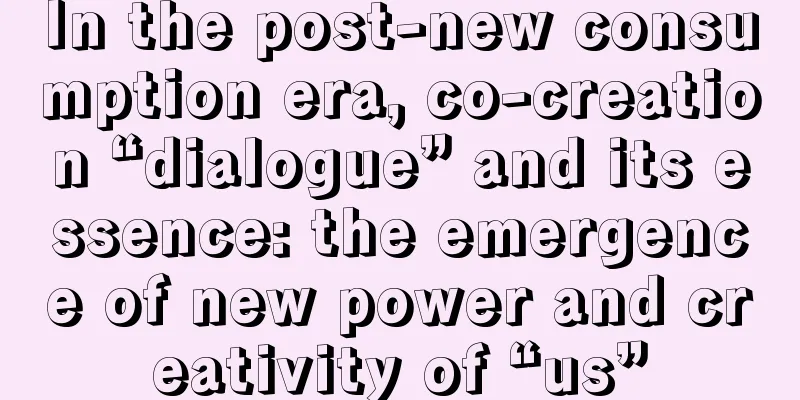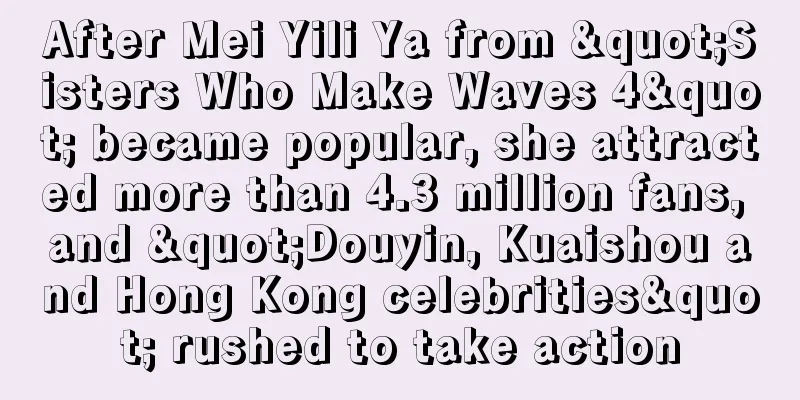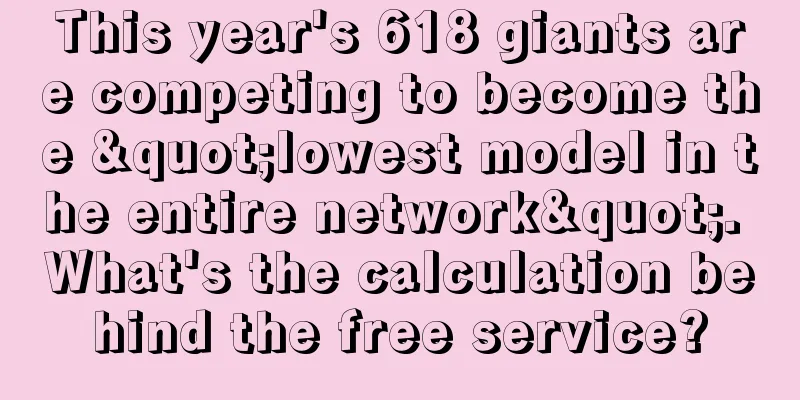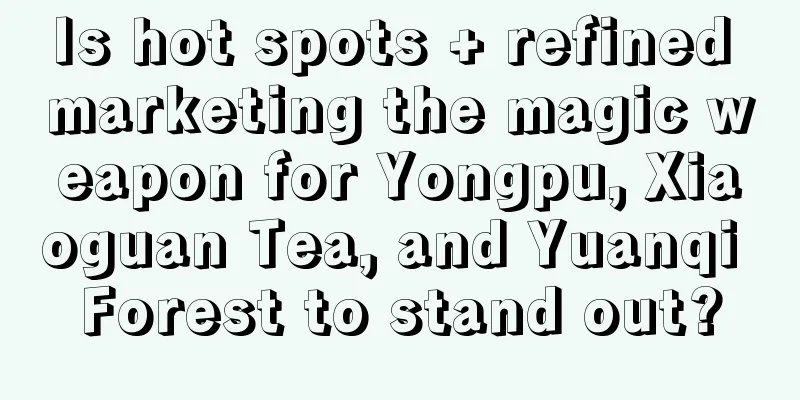The container of content is larger than the content itself
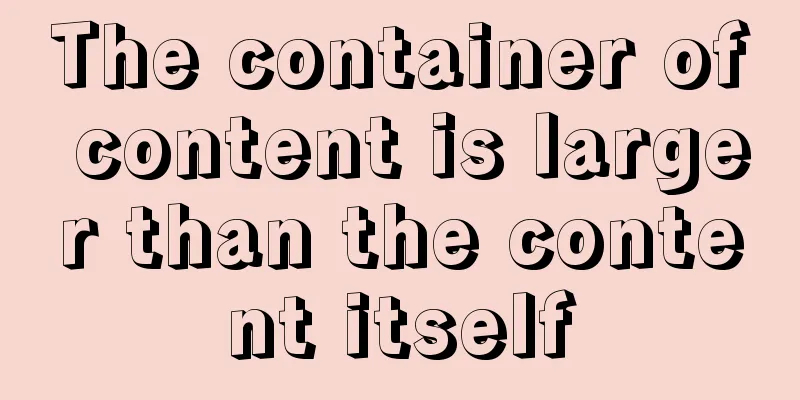
|
1. I used to write for public accounts, and later I started doing live broadcasts, podcasts, and long videos. I clearly feel that the fans in the live broadcast room are closer to me, and the data of the podcast is longer-tailed. Even if you write a great article, few people will read all the content of your past public account. But if you meet an unknown actor or singer whose background you don't know, as long as you like his work very much, you are very likely to read all his songs and film and television content he has participated in. Users of different media will have different expectations or different consumption habits. 2. In the US technology and Internet industry, more confident CEOs have begun to communicate and express themselves directly through podcasts. Musk talked to Joe Rogan, Sam Altman responded to everything on Lex Fridman's podcast, Gates talked about AI big models through Microsoft's own podcast, and you can hear Zuckerberg's response when he was questioned the most in Ben Thompson's podcast. They step to the front of the stage, and the communication efficiency is very high, because everyone wants to hear what the person says and see his reaction. For example, Sam would ask Lex Fridman, "Do you think AGI is conscious?" Then we would start discussing what consciousness is and what you think is the truth, 100% truth. The content produced by people is different from the people created by the content. 3. Focus on content or people? Live streaming, podcasts, and videos are not a product category, but innovative media like text and pictures. In fact, it is the content and information that are being transformed into videos, just like the Internet has infiltrated and transformed all walks of life in the past 20 years. The Internet is from the shallow to the deep, and the first to be changed is the media, starting from Sina Sohu, then Toutiao and Douyin, which basically reshaped the media industry, and then to Meituan, Guazi, and Beike, and then to education, medical care, energy, and finance, which are not very open industries. A few years ago, Douyin was still about beauty and dancing, but today, the largest content category on Douyin is news, which is equivalent to remaking Toutiao and Weibo with short videos. In the medium of short videos, the content will also be from shallow to deep, and more and more information and knowledge will be presented in the form of rich media such as video podcasts and live broadcasts. The difference between public accounts and rich media I just mentioned is actually the difference between text and people. And from the perceptible changes and comparisons in reading, the attention paid to text is indeed declining. This is because reading has a threshold, while rich media does not. Focus on content or people, create for curiosity or for algorithms, study the rules of distribution mechanisms or study how to make fans like it more or get closer to the truth. In fact, many people may not notice the subtle differences in their daily lives. For example, in WeChat Moments, no matter how tall or short, fat or thin, beautiful or ugly you are, rich or talented, your most popular content is always your selfies. Because at this moment, your content is exactly yourself, and the focus on content and the focus on people are unified at this time. People are the best content. During lunch, a classmate asked me why I rarely update my official account. I said that I have actually been producing content around live streaming for the past two years. For example, the above conversation expresses my recent thoughts on the media. 4. The way of building trust has changed In the past, in shelf e-commerce, merchants needed to rely on sales and crowns, and then the store would upgrade little by little. Today, we build trust directly with the anchor in the live broadcast room. Today, the dissemination of content, brands and IP has become more and more centered on personal media rather than limited to the platform itself. There may be 100 brands on the market, and each brand seems to have its own story and differences. But for users, the functions of each brand are similar, and no user will be interested in knowing which of the 100 brands is better or worse. When the goods are the same, the sellers are concentrated, and the user's trust is transferred from the brand to the person. Compared with users spending time to understand which of the 100 brands is better, it is better to just do one thing, that is, trust Simba, Jiaqi, and Xiao Yangge. The media is not just a carrier of information. While carrying information, the media also changes the way information is organized. 5. Product Containers and CEO Worldview When I do business analysis on various companies, it always comes down to two points: issues of product framework and containers, and issues of the CEO's worldview. I drew this picture when I was communicating with the Dianping team at the end of 2020. At that time, the benchmark was still Xiaohongshu. The conclusion was that the collection of stores was destined to be no match for the collection of people, because in the shelf e-commerce system, users are clearly defined as producers and consumers. But why can't consumers be creators? Why can't consumers help producers? Why can't production and marketing be combined? Can users have multiple values of producers, consumers and creators at the same time? If we change the comparison to Meituan and TikTok today, this picture would probably also be true. Today I really feel that the containers of Meituan products need to be upgraded. The problem of product containers. Today, there are three main paths for transactions: search recommendations and live broadcasts, of which live broadcasts are the most efficient. However, Meituan’s products do not even have videos or live broadcasts, and lack video, a medium with higher information density. Even if users want to build their own profiles in Meituan, they have no chance. There are no influencers to promote products, and no one to promote products for you, only merchants. However, today’s media has long switched to short videos, and Meituan is still mainly based on pictures and texts. Even if Taobao has made live broadcasts, Pinduoduo can still put videos in the second tab, and through various means, it has achieved daily active users of over 100 million. It's a question of worldview. In Meituan's logic, they are a retail company, and those who engage in content and traffic are companies engaged in commercial real estate. What does retail mean? We have to do the dirty work, the hard work and the tiring work. So Meituan's infrastructure is very good, and its performance is very good. Whether it is competing with Baidu or Alibaba, it can laugh to the end. I once talked with my classmates from Taobao. The development of business is from small shops on the street to department stores and hypermarkets to commercial complexes. Today's young friends prefer to go to Sanlitun, where there are street ladies, street photos, various live broadcasts, various rich product forms, and various entertainment. I don't come here just for consumption, I also need entertainment, and I also need various senses. But today Meituan still feels more like a super mall, and it has not yet reached the so-called commercial complex. It is the kind of real trend, the real cool, and it is still a little bit short of it. Meituan had no problem doing retail before. Those companies engaged in commercial real estate, such as Wanda, could do cinemas but not supermarkets, because cinemas follow the logic of commercial real estate traffic, while supermarkets follow the logic of retail. But this was the previous perception. What if those engaged in commercial real estate could understand retail? Today, we see a rival who makes fewer mistakes but is more determined. It is arrogant to insist on doing retail without touching commercial real estate. 6. Confirm differentiation first, then choose the right approach If everyone agrees that duration and vv are core indicators, then reading/community/social media products would have already had industrial standard solutions. Previously, Mr. Jin talked to me about how “TikTok” is not actually a product, but a “solution”, a standard solution that will have positive feedback if implemented. At present, Kuaishou/video account/Xiaohongshu/Bilibili have all verified that as long as this solution is used, positive returns can be obtained. The team that masters this solution and the team that does not master this solution are on two different levels. The only difference is that Bilibili and Xiaohongshu first confirmed the differentiation and then chose the correct solution. The embarrassment of Kuaishou is that it did the right thing, but everyone still wants it to answer the question of differentiation itself. For example, Xiaohongshu needs to answer who it is and why it is different from Douyin. “Human beings are very complex and diverse. This area can only be solved with UGC. There is no other way. Because we choose the lifestyle we want, because we demand diversity, we have containers and styles like Double Column/Discovery.” The core difference between Xiaohongshu and Douyin lies in the product container and how to operate. First of all, what you want to do is different. The product container serves what you want to do, but the product container determines the efficiency of recommendation. Xiaohongshu's double-column mixed picture, text and video product container is more like Pinterest, serving the discovery and diversity of products. Compared with Douyin, which has a single column with infinite up and down scrolling and is more like a TV, this product container is not the product logic of maximizing consumption efficiency. When it comes to maximizing consumption, Xiaohongshu's double columns cannot compare with Douyin's single column, so as to leave as much space as possible to carry other values. This is where the product determines the differentiation. How to operate, you need to match the product container. When ByteDance was developing its grass-seeding community Xincao to compete with Xiaohongshu, it used the same product framework as Xiaohongshu, but still used Toutiao's content to fill the logic. As a result, the user experience was not very efficient. If Toutiao's content is used to fill the logic, the most efficient one is Douyin. The route to maximize efficiency should be to find a product container that maximizes consumption efficiency and add content and UG links. The path to maximize efficiency is rough, fast and fierce, looking at what is the largest and how to do research with the highest market share. The result is that it is not the same as the real user experience. It is a common logic that great efforts can bring about miracles, but it is a little different in the community quadrant. Earlier, Chen Rui was asked in an interview with Wandian, "Imagine that ByteDance runs Bilibili? They might give large subsidies to up-masters, make the information flow on the homepage more addictive, and then insert advertisements to sell. The most important thing is that if there is only one sum of money from the beginning, and if they have to choose between a mass content and a group of niche content that ACG users like, they might choose the former without hesitation." In a single-column up-and-down sliding product framework, users respond to content instantly, and the negative and positive feedback signals are very strong, which can be captured by the algorithm, and continue to recommend more expressive and attractive content to users. However, because Bilibili and Xiaohongshu have a lot of top-level thinking and trade-offs in the community itself, they often make irrational and persistent choices. Moreover, when it comes to life, it is not a professional field, nor is it an objective and absolutely correct field. Aesthetics is not a global popular logic. Everyone wants to live out their own life. It can only solve the diversity and long-tail needs by having more people share here. 7. Tian Ji's Horse Racing I watched the Alibaba Cloud press conference this morning and saw in the PPT that all companies were at the same starting line. I posted a message on WeChat Moments jokingly saying that yes, all companies are at the lagging starting line. In front of the alliance of Microsoft + OpenAI, all giants are equally left behind. Just like the mobile Internet battle royale ten years ago, a new round of elimination of giants has begun, and a new terrifying balance is needed between the giants to ensure mutual destruction. All of Alibaba's services need to be connected to the big model, and the first thing that comes to my mind is the combination of Microsoft + OpenAI. If we look at Microsoft's actions from the perspective of commercial competition, for example, why Microsoft wants to serve OpenAI and integrate with ChatGPT, it is actually because Microsoft's core lies in productivity, platform and cloud services. Microsoft wants OpenAI to eventually serve its cloud. As for the emergence of a New Bing that integrates ChatGPT technology, will Google follow up or not? If it follows suit, search profits will surely drop significantly, and if it does not, there will also be a risk of lower profits. In such a competitive environment, Google's core cash flow faces major problems. If Google cannot continue to follow suit, it will not be able to continue to be the leader in cloud services, giving Microsoft Cloud a chance to compete for leadership. This is just like the situation when JD.com lowered the price of books to beat Dangdang. It is embarrassing whether it follows suit or not. Of course, I am also curious about the fact that all Alibaba services will be connected to the big model. Will there be a situation where Taobao merchants can automatically generate all kinds of content? For example, merchants no longer need to find so many models to shoot, but can directly use an AI to generate natural pictures and videos of all ages, heights, shorts, fats and thins in all scenes. The supply is extremely rich, which is definitely many times richer than human supply. The shelves can be stuffed with enough content that is more scene-based and personalized. 8. Services with higher information ranking power can bear more advertising pollution In early 2013, I read an article in Wired that said the Internet was moving from the spatial structure of websites to the temporal structure of Facebook and Twitter. Space is static, time is fluid, and search engines and e-commerce are built on static webpages and will be affected first. The world flow has shifted from "seeking what can be gained" to "providing what I need", and the main function of computers will shift to the continuous tracking of global digital flows. Looking back today, it is a very forward-looking judgment. I think the most important power on the Internet is ranking, that is, who can decide what content you see next. The following is a passage from the views of Tim Gong, an angel investor of ByteDance, in an interview with Wang Feng: At the beginning of the Internet, starting from Yahoo, the underlying logic of the most valuable business model on the Internet has always been the sorting of information. In the Yahoo era, "experts" helped everyone sort, and everyone consumed the same information. Google's search algorithm sorts information according to the keywords of the query. Facebook, Twitter, and WeChat sort information according to each person's social relationship. In ByteDance, the algorithm sorts the information according to your own interests and history and recommends it to you. This is what I often say. ByteDance has achieved a leap from "people looking for information" to "information looking for people". "Content looking for people", "goods looking for people" and "services looking for people" are all sorting and distributing massive amounts of digital information according to certain logic (such as interests). The premise for all this to be realized depends on computing power, the exponential growth of communication speed and the full digitization of information (primary sorting). In fact, the next-generation Internet applications we see today, such as ChatGPT, Web3 or Web5, are also innovations in information sorting. Information is a kind of negative entropy. The more accurate the information, the lower the entropy value. The information of early traditional media, goods and services all had relatively high entropy values. The digital process of information upgrading is an evolution of sorting from low to high levels, and it is also a process of reducing entropy. The purpose of sorting information by search keywords or people's interests is to distribute accurate information to individuals and reduce entropy. The competition among Internet companies is to reduce more entropy with unit energy. Then the differential -dS/dU is the quantification of their speed of creating commercial value. But whether it is "people looking for information" or "information looking for people", the sorting of this information is completed by the centralized platform. The centralized platform inserts advertisements into the sorting results, which is a kind of "pollution" of the sorting results, increasing the information entropy received by users. In essence, it transfers the negative entropy of users to the platform itself. The competition among various platforms is a competition of entropy reduction efficiency. The more efficient the entropy reduction service is, the more advertising pollution it can bear. However, their business model determines that the purpose of improving the efficiency of the platform is to make users tolerate more advertisements. Users will not benefit from technological progress and efficiency improvement. This problem is common to all centralized platforms. The best platforms, such as Google and ByteDance, strongly associate (rank) advertisements with users’ keywords and interests, allowing users to obtain accurate information while also obtaining accurate advertisements. However, advertisements are information that increases entropy for users driven by the interests of advertisers. Centralized platforms insert advertisements into the ranking results to obtain revenue at the expense of the interests of users. It disrupts the ranking in an opaque way, causing an increase in user entropy. 9. Navigation and connectivity may no longer be important Looking through Douban’s official logs since its founding in 2005, I discovered Abei’s original core definition of Douban products: high-value content before, during, and after viewing.
For a long time, Douban has only been a gateway to high-value content, doing pre- and post-viewing work. As for the high-value content consumption that users really care about, that is, the user's purpose itself, Douban has tried Jiudian, Douban Reading, and Douban FM, but they were quickly shut down or split up. So far, there is no video consumption scenario in Douban products. There are book reviews but no books to read, movie reviews but no videos, music reviews but no music. All high-value content is in the hands of others. The purpose of only doing the pre-viewing and post-viewing but not the post-viewing is easy to be intercepted by other products that focus on consuming content. The topics, broadcasts and groups that Douban users are more active in today are not built around high-value content. As mentioned earlier, the higher the information ranking power of a service, the more advertising pollution it can bear. The business model of mainstream content platforms relies on ranking intervention in the push, search and broadcast display format. But after reading Newbing, you will find a big difference. The previous search was to find the path, but now the search is directly the destination. If I really want the service, then for high net worth or more discerning users, can I bypass these advertising pollution and go directly to the service itself? As Tim Gong believes, a more transparent, just and fair business model should be that the network provides services to users and the service provider charges users. The development of the Crypto industry has verified that transparently charging Gas or handling fees in asset transactions is a very good business model, and users will definitely pay for products that generate negative entropy and value. 10. McLuhan is truly a prophet. |
<<: How to compete with Douyin? This is how Xiaohongshu makes strategic decisions
>>: In-depth Insight | The Dilemma of Private Domain Traffic
Recommend
How is Shopee's official wallet? How is the supplier payment function?
There are several payment services on the Shopee c...
Chongbai New Century is betting heavily on “fresh food + discounts”, a new solution for the retail industry?
Chongqing New Century Supermarket is the first lar...
What is Amazon Project Zero? What are its benefits?
In order to protect the rights and interests of me...
Is Dunhuang cross-border e-commerce a scam? Can we do it?
Dunhuang.com Cross-border E-commerce Platform is a...
Where can I find Amazon disposal fees? How are they calculated?
Merchants who open stores on Amazon know that ther...
The great voyage of brands is ultimately a battle for value/cost ratio
What we want to talk about is not only a concept, ...
How to tell if it is Amazon-operated? What are the tips for Amazon direct mail?
There are many types of stores on the Amazon platf...
In the era of stock users, the enlightenment and warning brought by the passive "out-of-circle" of Internet celebrities
This article first proposes that we have entered t...
Which of Amazon's three advertising methods is the best? How to choose?
Everyone will try to do promotion on Amazon, so ma...
"My Altay" Relaxing copywriting, my class freshener
This article lists the relaxing copywriting in &qu...
Things to pay attention to when doing Xiaohongshu marketing in 2024
In recent years, more and more people and companie...
Is it easy to be an Amazon operations specialist? What does a specialist do?
Amazon operations specialists are managers who are...
What bank cards does eBay support? Can eBay use UnionPay cards?
The products on the eBay cross-border e-commerce p...
Is there a chance for Xiaohongshu to win the Double 11? How to do it?
The annual Double 11 Shopping Festival is approach...
Can Heytea be saved by "joint venture"?
Following cross-border collaborations with film, t...



